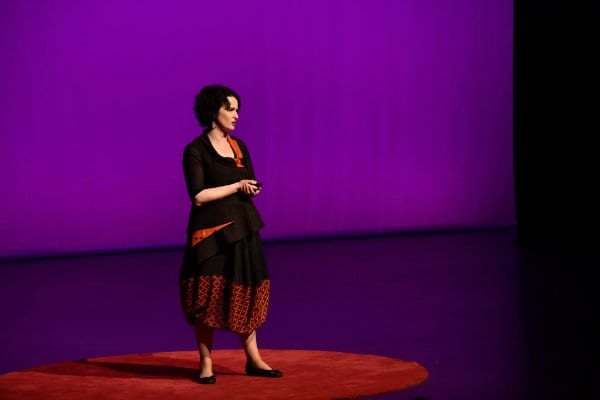They were subject to a torrent of hate-filled messages via social media.
A photo of Gorman, her husband and their two children was posted on a fascist website.
Your life is over.
One message read.
“Like so many others who have been through this before and since, we wondered: “Is someone really coming for us?”, Gorman says. “There was no way to gauge the nature of the threat. Unlike a face-to-face confrontation, this threat was omnipresent and followed us into our private spaces.”
One thing was painfully clear: there was nothing virtual about the impact this had.
“There is an idea that online trolling is virtual and therefore not real,” Gorman told Women’s Agenda. “What my investigation shows is the impact is very real. Trolls are pushing people to commit suicide, they are getting people fired, inflicting severe mental distress and breakdowns on individuals. There is nothing virtual about it.”
And, in many cases, it is orchestrated to create the maximum damage.
For the past five months Gorman, an ACT-based print and radio journalist, has been investigating trolls for a series of Fairfax Media reports and what she has discovered is far more terrifying than she had contemplated.
“I didn’t realise how dangerous they were,” she says. “I didn’t know they were operating as syndicates with hundreds of members making co-ordinated attacks.”
When Gorman sought advice about the danger a troll like Mark, whom she had interviewed and communicated, posed the answer from a cyber-security expert was chilling.
“Don’t name him and don’t name his trolling gang. Because if he doesn’t like what you write and you piss him or his gang off, they will come after you,” the expert told her.
Gorman’s purpose for reporting was initially to increase awareness of the subject: to shine a light under the bridge. As her investigation continued, and her understanding of the danger and toxicity of trolling increased, her aim expanded.
She is adamant that law enforcement need to increase its willingness and capability to respond.
“Essentially the internet is no different to our offline lives. Just like we have civil society offline we need it online too,” she says. “If someone came up to me in the supermarket and said “I’m going to cut your uterus out and kill your children” no one would suggest not visiting the supermarket.”
And yet, that is effectively the advice law enforcement have given victims of cyber hate and cyber bullying.
‘Stay off the internet love’, is what Gorman was told by police when she reported the flood of abuse she was facing.
“When you and your children are caught in the middle of a tsunami of hate that isn’t realistic or reasonable,” she says. “The laws are fine, it is illegal to menace and harass online, but law enforcement aren’t taking action on this harassment because they don’t understand the real life consequences of trolling.”
Resourcing and training are the two major obstacles that need clearing to change this.
“Women are increasingly becoming the objects of these tsunamis of hate. It is the virus of misogyny and it’s not ok.”


